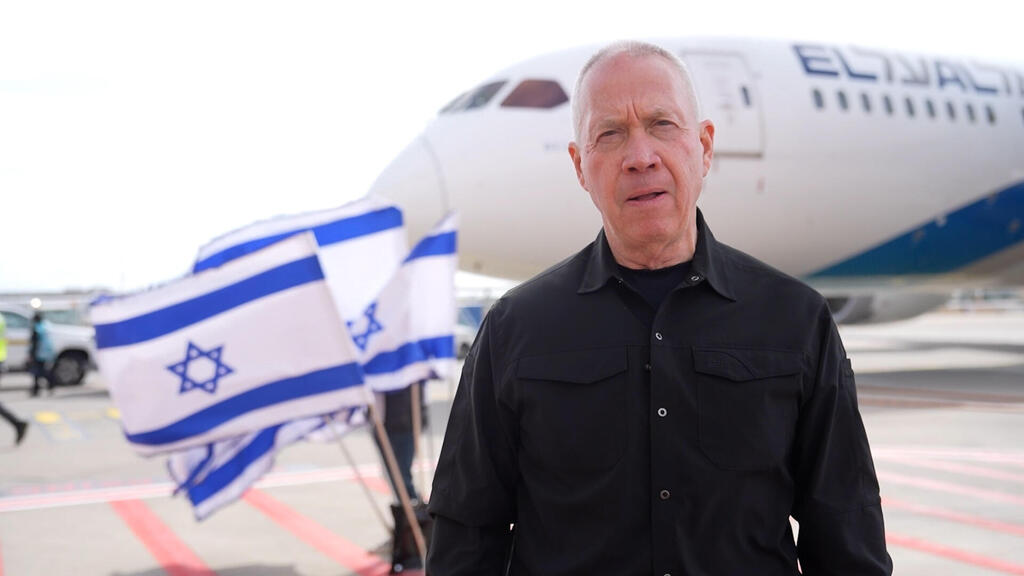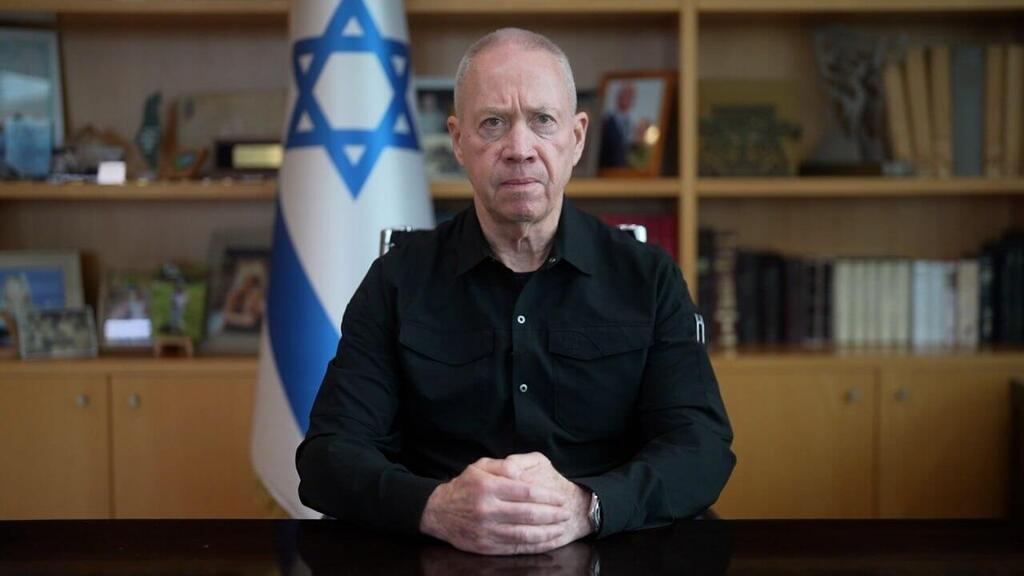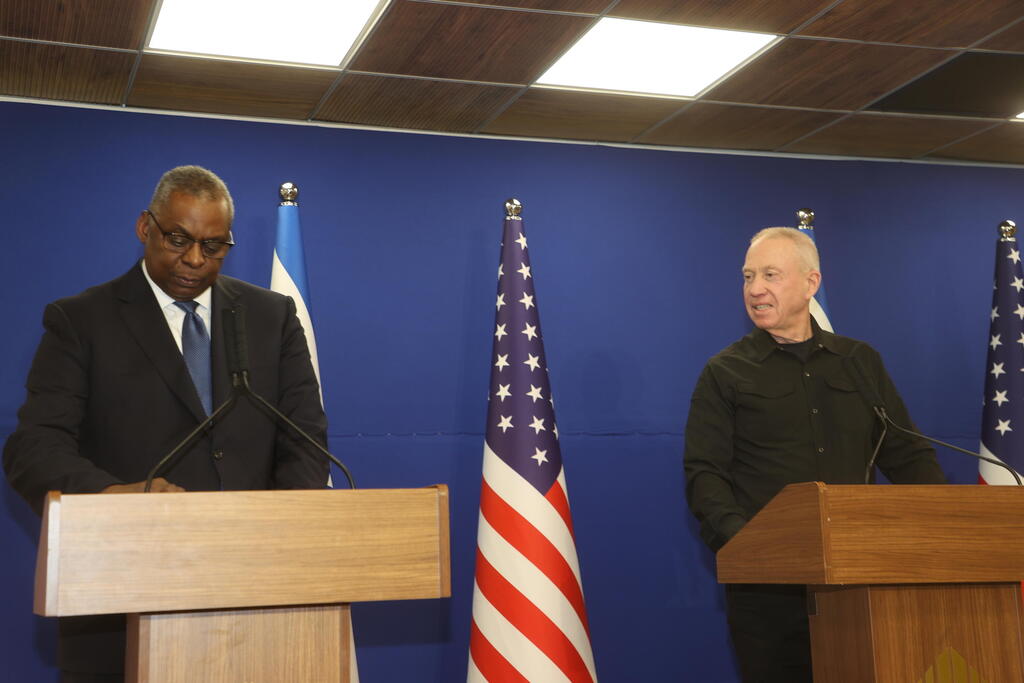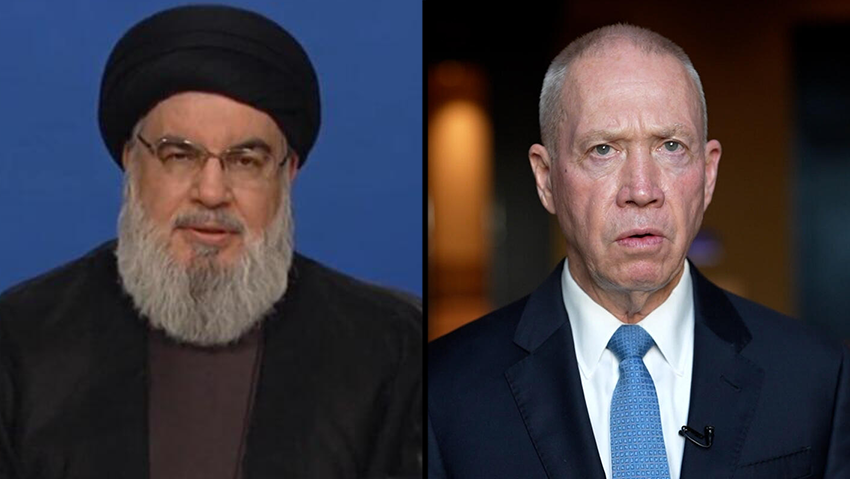Defense Minister Yoav Gallant traveled on Sunday to Washington to meet senior White House officials at the invitation of U.S. Secretary of Defense Lloyd Austin. The visit comes at a critical time when Israel finds itself at a diplomatic, military and security crossroads. This is Gallant's first visit to the U.S. since the November 2022 elections and his first visit since October 7.
Read more:
Austin is eager to meet with him formally but wishes to discuss matters with him as a rational voice in the Israeli government. On one hand, Gallant calls for the elimination of Hamas, but on the other hand, to create an alternative that ultimately, contrary to the position of others in the government, transfers responsibility for the Strip to local figures that are not affiliated with Hamas.
In addition to Austin, Gallant will meet with Secretary of State Antony Blinken, National Security Advisor Jake Sullivan, CIA Director William Burns and Special Presidential Envoy Amos Hochstein. Gallant will also hold meetings with representatives of the pro-Israel lobby AIPAC and members of Congress.
Upon his departure to the U.S., Gallant said, "I am leaving today for the United States at the invitation of the American administration for a critical visit, to meet with several senior American officials. I'll focus on preserving Israel's qualitative edge and ways to achieve the common goal, victory over Hamas and the return of the hostages. The trip will focus on Israel's ability to acquire air platforms and weaponry, but no less importantly, on Israel-U.S. relations and the goals to maintain Israel's security, first in Gaza, then in Lebanon."
"We will also deal with the way we return the residents of the north to their homes, whether through a military operation or an agreement. I want to thank, from the bottom of my heart, the American government, and my friend Lloyd Austin, for the invitation to come to the U.S. at a crucial time to maintain the special and important relationship between the two countries," he added.
Gallant will discuss the Rafah operation plans and the consequent increase of humanitarian aid to Gaza with his American counterparts. Gallant is expected to update his partners that the Ministerial Committee for Defense Procurement will soon approve the defense establishment's plan to acquire additional squadrons of F-35 fighter jets, F-15 jets and Apache helicopters.
The funding for the equipment to the tune of billions of dollars will mostly come from American aid funds but also from the Israeli budget. Gallant will emphasize that these matters are dramatic and critical to Israel's security. Defense Ministry Director-General Major General (res.) Eyal Zamir, who is accompanying Gallant, is expected to continue discussions on the subject with his American counterparts afterward.
Gallant will also address the issue of the continued transfer of American arms to Israel. For now, there are no delays in the transfers, despite reports that the U.S. is contemplating such delays, especially after learning of Israel's plans in Rafah. Furthermore, Gallant will ask to ensure that arms shipments continue according to plan and to ask for continued American support on the global stage.
5 View gallery
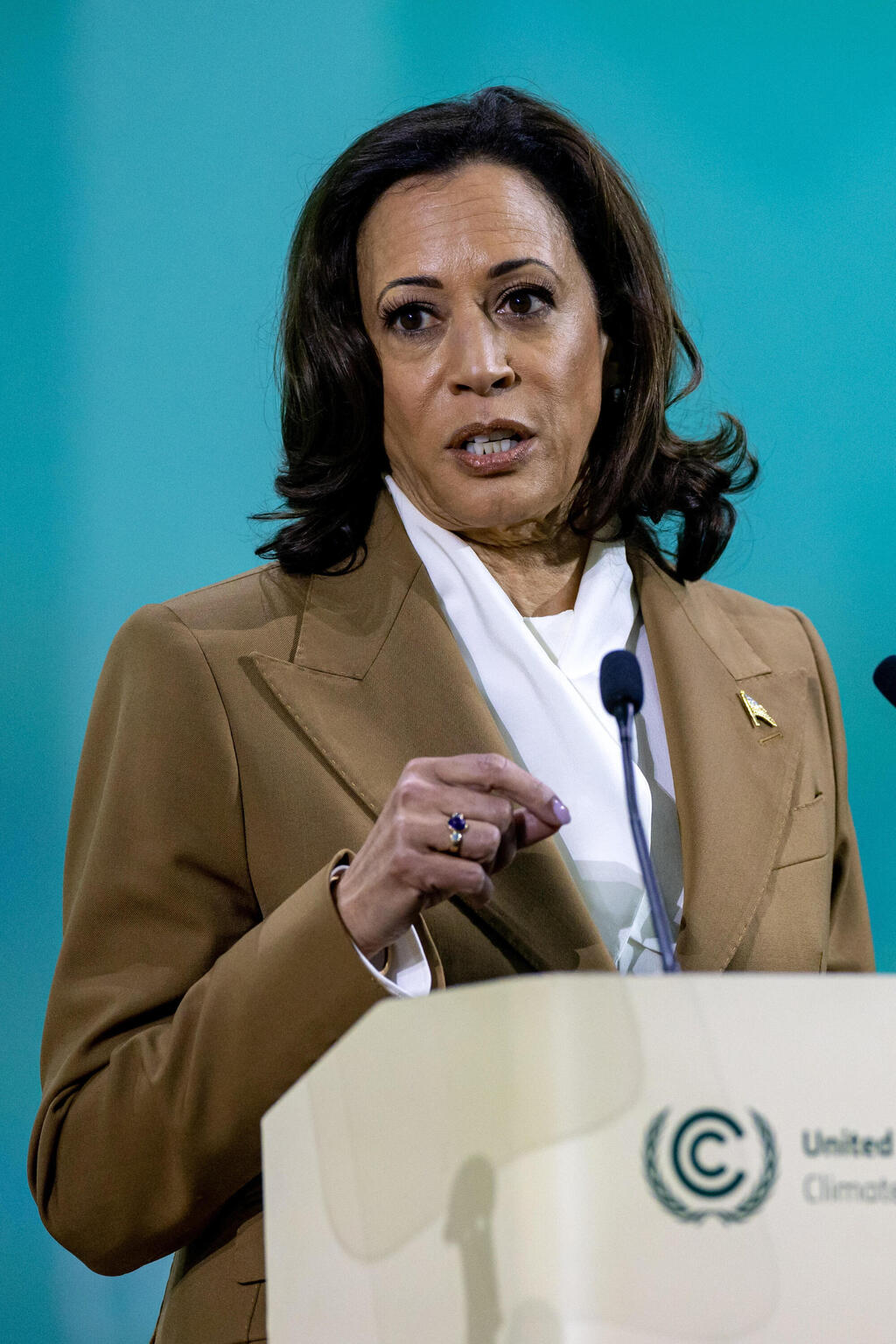

VP Harris recently said she was not ruling out 'consequences'
(Photo: EPA /MARTIN DIVISEK)
During Gallant's expected meeting with CIA Director Burns, he will discuss the ongoing efforts to release the hostages. Gallant will also discuss with his counterparts "the day after" in Gaza and possible scenarios. He will present his plan to gradually transfer control to local Palestinian forces including all that entails. Gallant believes a strong governing force in Gaza is needed that is not Hamas.
During Gallant's visit, humanitarian aid will be a key issue from the American viewpoint, especially concerning their demand for a credible plan to evacuate Rafah's population. Gallant will present data indicating an increase in humanitarian aid to Gaza, demonstrating that there is no famine in the Palestinian enclave.
Israel has increased the entry of humanitarian aid trucks to Gaza from dozens on average in January to 250 a day in March.
Israel has increased the entry of humanitarian aid trucks to Gaza from dozens on average in January to 250 a day in March. Gallant is expected to tell his counterparts that contrary to claims, there is no famine in Gaza. Israel's calorie measurement has revealed that each Gazan citizen receives an average of 1,600 calories per day, a figure far from starvation. That is without the Israeli assessment that Palestinians have additional resources from other countries.
Return of northern residents to their homes
Another issue that will arise in discussions with the Americans concerns establishing a subterranean barrier between Gaza and Egypt. Regarding the Lebanese issue, Gallant will press the issue of returning the Israeli northern residents to their homes and preferably enforcing UN Resolution 1701. Ultimately, the situation will be determined by Lebanon's ability to confront Hezbollah.
Approximately 55,000 Israelis have not yet returned to their homes in the north since the beginning of the war. Gallant has been considering military action if both sides can't reach a diplomatic agreement. The only implication of military action would be a potential escalation which could lead to a full-scale war, leading to extensive damage to Lebanese infrastructure and state.




